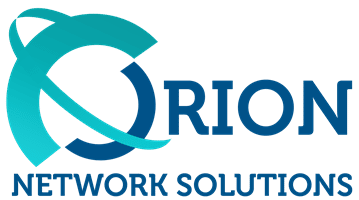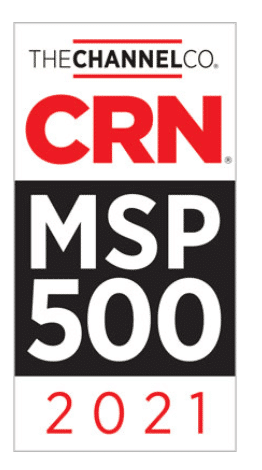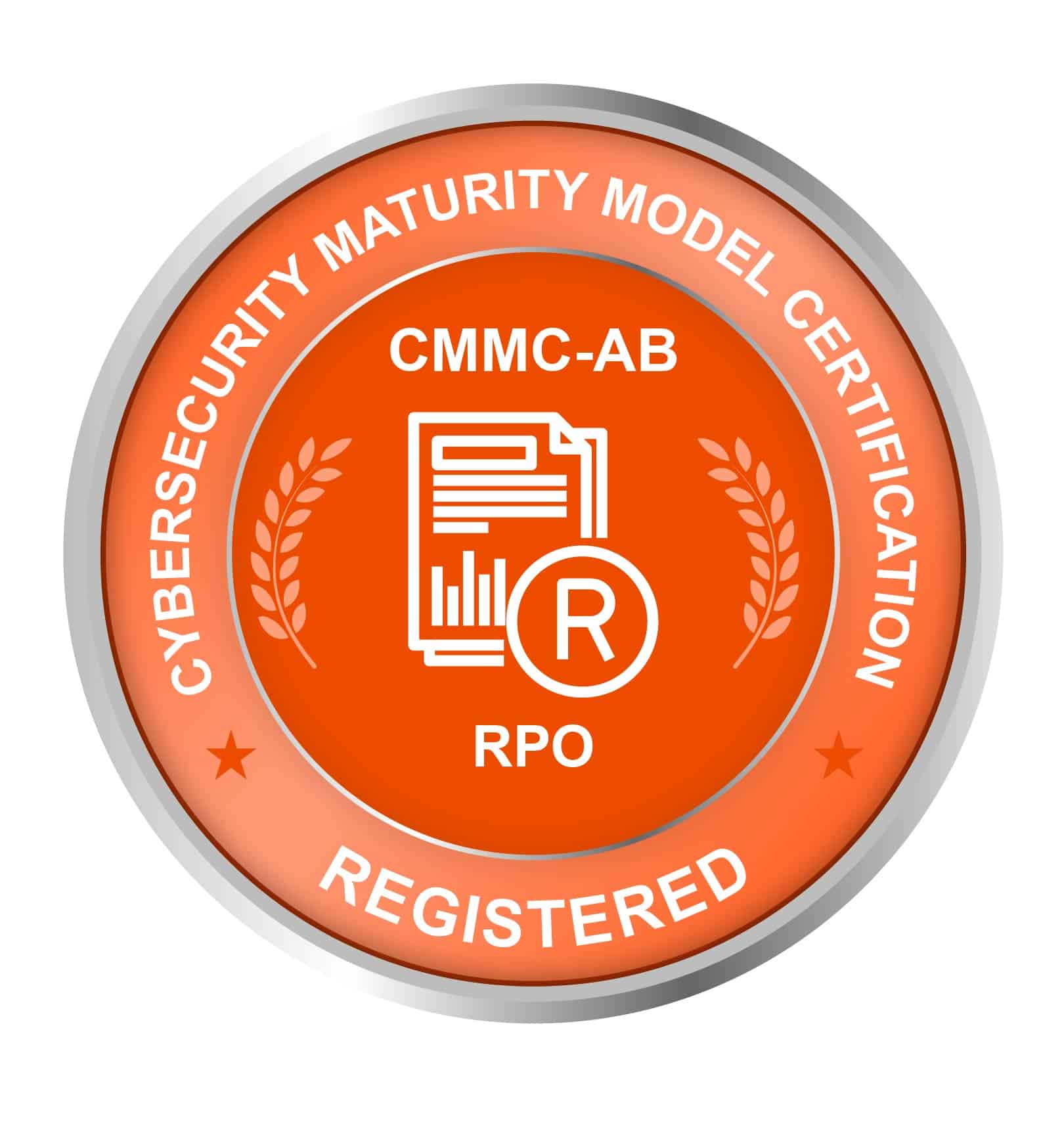Where Can Nonprofit Organizations Across Metro DC Go For Quality IT Services? Unveiling Top Tech Solutions
Nonprofit organizations across the metro DC area thrive on serving communities and fulfilling their mission with limited resources. Having reliable IT services is a cornerstone for ensuring these organizations maintain operational effectiveness. For us at Orion Networks, understanding that each nonprofit has unique technology needs is the first step towards tailoring IT solutions that bring value and increase efficiency.
We recognize that non-profit organizations face distinct challenges, with budget constraints often sitting at the top of that list. That’s why we offer comprehensive IT support and services, including robust tech support designed to minimize risks, keep operations running smoothly, and provide dependable assistance. With a customer-focused approach, we align our IT solutions with your organizational objectives to boost productivity and propel your mission forward.
Key Takeaways
- Nonprofit organizations benefit from IT services that align with their unique missions and operational needs.
- Orion Networks provides cost-effective, reliable IT support tailored to the nonprofit sector.
- Partnering with Orion Networks ensures enhanced efficiency and reduced downtime for nonprofit organizations.
Understanding Nonprofit IT Needs
In our experience, nonprofit organizations have unique IT requirements that merit careful consideration.
Assessment of Current IT Infrastructure
We begin by conducting a thorough assessment of the existing IT setup. We evaluate:
- Hardware: Computers, servers, networking equipment
- Software: Databases, content management systems, security tools
- Services: Email, web hosting, cloud storage
- Support: IT maintenance and troubleshooting protocols
Specific IT Challenges for Nonprofits
Nonprofits often face distinct IT challenges, including:
- Budget Constraints: Resources are limited, affecting the quality and sustainability of IT services.
- Data Security: Handling sensitive donor and beneficiary information necessitates robust security measures.
- Regulatory Compliance: Ensuring software and processes meet legal requirements is crucial.
- Staff Training: Varied tech proficiency among staff calls for tailored training programs.
Evaluating IT Service Providers
When choosing an IT service provider, we must consider a range of factors to ensure high-quality service that meets the specific requirements of our nonprofit organization.
Criteria for Selecting a Service Provider
To ascertain the best IT service provider for our needs, we must thoroughly assess potential candidates based on certain criteria:
- Services Offered: Assess if they offer a comprehensive suite of services, including IT infrastructure, cybersecurity, and support necessary for our operations.
- Nonprofit Experience: Verify their experience with nonprofit organizations to ensure they understand our unique needs.
- Reputation and Reviews: Look into their track record and client testimonials.
- Cost: Consider the pricing model and ensure it meets our budget constraints.
- Support and Responsiveness: Confirm they provide prompt and reliable customer support.
It’s essential to create a checklist tailored to our specific IT requirements and measure potential services against it.
Local vs. National IT Support
Local IT Support:
- Tailored Support: Local MSPs may offer more personalized service.
- Community Presence: They have a presence in our community and might be more accessible.
- Response Time: Potentially quicker on-site support due to geographical proximity.
National IT Support:
- Wider Reach: National providers may offer extensive resources and technologies.
- Scalability: They might better support growth or multi-location services for large nonprofits.
- Expertise: Could offer a broader pool of expertise and specialized skills.
Comprehensive IT Solutions for Nonprofits
When partnering with us, nonprofit organizations in the Metro DC area benefit from an array of specialized IT services tailored to their unique needs. Our team prioritizes robust solutions to keep operations seamless, secure, and supported at all times.
Managed IT Services
We offer Managed IT Services designed to handle every aspect of a nonprofit’s technology landscape. This includes:
- Round-the-clock help from our dedicated help desk
- Strategic planning to align IT with organizational goals
- Predictable budgeting with our fixed-rate “Atlas” plan, ensuring no extra costs
By entrusting us with IT management, nonprofits can focus on their mission while we keep their systems up and running efficiently.
Cloud Computing Services
Our Cloud Computing Services provide:
- Flexible and scalable resources
- Remote access to applications and data for staff and volunteers
- Enhanced collaboration tools to improve productivity
Cloud solutions empower nonprofits with the capability to access their data securely from anywhere, at any time, fostering a more dynamic and collaborative work environment.
Cybersecurity Solutions
We prioritize the security of our clients with comprehensive Cybersecurity Solutions:
- Robust data protection measures to safeguard sensitive information
- Continuous monitoring for threats and vulnerabilities
- Training and support to staff for maintaining best security practices
Through proactive security management, we minimize risks and ensure that our nonprofit clients’ data remains secure against evolving cyber threats.
Funding and Budgeting for IT Services
We understand that nonprofit organizations within the Metro DC area need to be judicious with their financial resources, particularly when it comes to IT services. Effectively sourcing funding and establishing a strategic budget for these services are crucial steps in achieving both short-term operations and long-term mission goals.
Grants and Funding Opportunities
In the District of Columbia, nonprofit organizations have various avenues to explore for IT-related grants and funding. The Office of Partnerships and Grant Services offers a collection of resources designed to streamline the search for grants, such as:
- DC.Gov Web Team: Disseminates information about available technology grants on their social media channels.
- Commission on the Arts and Humanities: Provides grants that can sometimes be applied to IT services when they align with artistic and cultural projects.
- Mayor’s Community Grant Program: This program administered by the Mayor’s Office on Community Affairs may allocate assistance for IT improvements as part of broader community engagement initiatives.
Organizations must keep abreast of Funding Alerts and utilize the Grants Clearing House to identify and apply for available IT grants efficiently.
Strategic IT Budget Planning
Budgeting for IT services should not solely be about maintaining a balanced budget. It’s about understanding and allocating true IT costs that support your organization’s objectives. Here are key components to consider:
- True Program Costs: Budget for the actual cost of IT services, which includes software licenses, maintenance fees, hardware, and any consultancy or training required.
- Reserve Building: Do not shy away from budgeting in such a way that enables the building of financial reserves for future IT investments.
- Break-Even Analysis: While not always the goal, understanding when and how your IT costs align with your budget can be a guiding principle.
Strategically planning your IT budget with these elements in mind will contribute to a more stable and adaptive technology environment for your organization.
Case Studies
In exploring the value of quality IT services for nonprofit organizations within the Metro DC area, we’ve compiled case studies highlighting success stories and drawing lessons from various nonprofits’ experiences.
Success Stories of Local Nonprofits
Nonprofits in the DC area have seen tangible benefits from partnering with reliable IT service providers. These collaborations have streamlined operations and enhanced their capacity to serve the community effectively. For example, a nonprofit focusing on food distribution and education benefited from an updated IT infrastructure, which facilitated more efficient coordination of their food distribution program and helped establish community gardens.
Lessons Learned and Best Practices
Our analysis of case studies indicates that successful IT partnerships share common practices:
- Clearly Defining IT Goals: Nonprofits were more satisfied with IT services when they had clear objectives for their technological needs.
- Choosing Adaptable Solutions: Opting for IT services that offer scalability ensures that as the nonprofit grows, the IT solutions grow with it.
- Implementing IT training for staff to leverage new systems to their full potential increases productivity and better data management.
Legal and Compliance Considerations
Our article focuses on the legal and compliance responsibilities that nonprofit organizations in the Metro DC area need to address regarding IT services. Understanding and adhering to these laws are critical for operational integrity and maintaining public trust.
Data Protection and Privacy Laws
Our IT services must adhere to data protection and privacy laws. These laws govern how sensitive information is collected, stored, and shared. For instance:
- Health Insurance Portability and Accountability Act (HIPAA): If we handle health-related data, compliance with HIPAA is mandatory.
- General Data Protection Regulation (GDPR): Although a European Union regulation, GDPR applies to us if we deal with the personal data of individuals in the EU.
- Children’s Online Privacy Protection Act (COPPA): If our services reach children under 13, we must comply with COPPA to protect their personal information online.
Compliance with Grant Requirements
Compliance with grant requirements is also a pivotal aspect of legal and compliance considerations. Grantors often have stringent IT-related prerequisites that we must observe. This can include:
- Ensuring that grant-funded hardware and software are used exclusively for the purposes stipulated in the grant agreement.
- Maintaining meticulous records and evidence of how grant funds are allocated towards IT needs.
- Securing data with appropriate cybersecurity measures to prevent unauthorized access or data breaches.
By following these guidelines, we can fortify our legal standing and uphold the standards expected from nonprofit organizations.
Education and Training
To excel in the nonprofit sector, it’s essential for organizations to equip their staff with robust IT knowledge and to use technology to amplify their mission effectively. Training programs tailored for nonprofit staff can transform your organization’s capacity to serve the community, while strategic application of technology can substantially increase your outreach and operational efficiency.
IT Training for Nonprofit Staff
We understand nonprofits’ unique challenges, including often limited resources for comprehensive IT training. Our targeted training programs are designed to empower your staff with the skills necessary to manage and utilize technology effectively. Here’s how we streamline the process:
- Structured Learning Pathways: By offering structured courses, we ensure systematic skill acquisition from fundamental to advanced IT proficiency.
- Customized Content: Considering your organization’s specific needs, we tailor our training modules to address the exact technologies you’re implementing.
Leveraging Technology for Mission Impact
Our services go beyond training; we enable nonprofits to leverage technology to maximize mission impact. Key strategies include:
- Tech-Enabled Collaboration: By implementing tools that enhance team collaboration, we can help increase productivity and extend your organization’s reach.
- Data-Driven Decision Making: Utilizing data analytics, we assist in refining strategies and measuring outcomes, allowing for informed decisions that propel your initiatives forward.
Through these focused educational services, we’re committed to strengthening your nonprofit’s capability and ensuring that technology becomes a cornerstone of your success.
Choosing the Right IT Tools
When approaching IT solutions, we focus on selecting software that maximizes efficiency and determining hardware that meets our operational requirements.
Software Selection for Nonprofits
Selecting the right software is critical for our productivity and resource management. It’s essential to consider both functionality and cost-effectiveness when choosing software tools. We must evaluate whether a platform meets our needs, such as donor management, fundraising, or peer-to-peer fundraising. For example:
- Customer Relationship Management (CRM) tools can streamline our donor engagement efforts.
- Fundraising software should offer robust features for campaign management.
- Marketing platforms are necessary for promoting our mission and engaging with the community effectively.
We should look for platforms that offer discounts or free versions to nonprofits, which can help us direct more funds toward our mission.
Hardware Needs Assessment
Hardware needs vary greatly among nonprofits, depending on the size of our organization and the nature of our work. A thorough assessment should include:
- Computers and Servers: Assessing the number of devices needed and their specifications to handle our software requirements.
- Networking Equipment: Ensuring reliable internet access and internal networking capabilities for staff and volunteers.
- Peripheral Devices: Identifying printers, scanners, and peripherals supporting our day-to-day operations.
Investing in quality hardware that offers reliability without exceeding our budget constraints is important.
Partnerships and Collaboration
In Metro DC, nonprofit organizations have the unique opportunity to boost their IT capabilities through effective partnerships and collaborations. These alliances enhance IT services and strengthen our connections within the nonprofit sector.
Collaborating with Tech Volunteers
Recruiting tech volunteers can provide substantial IT support without incurring significant costs. Notable is our partnership with the Mayor’s Office on Volunteerism and Partnerships, which awards grants to strengthen organizational capacity. By tapping into this resource, we can access a network of skilled volunteers who can assist with:
- Technology training for our staff
- System upgrades and maintenance
- Implementation of innovative tech solutions
Forming Strategic IT Partnerships
We need to forge strategic IT partnerships to further our mission. Aligning with technology-focused organizations or businesses offers benefits such as:
- Access to cutting-edge technology and expertise
- Cost-effective IT service management
- Opportunities for scaling up through resource sharing
By forming these strategic partners, we ensure our technological needs are met, allowing us to focus on our core mission of serving the community.
Future of Nonprofit IT
We recognize the importance of staying ahead of the curve in the rapidly evolving tech landscape. Nonprofits in the Metro DC area face unique challenges and opportunities regarding IT services.
Emerging Technologies
Emerging technologies offer nonprofits new ways to engage with constituents, optimize operations, and fulfill their missions more effectively. We’re particularly focused on:
- Blockchain: This technology can increase transparency in donations and financial transactions.
- Artificial Intelligence (AI): AI can personalize donor experiences and streamline administrative tasks.
- Machine Learning: For predictive analytics, machine learning helps identify giving patterns to secure future funding.
- Cloud Services: Cloud computing continues to be essential for remote work and collaboration.
Planning for Long-Term IT Sustainability
Ensuring the longevity of IT systems is crucial for nonprofits to continue their work without interruption. Our approach includes:
- Regular Assessments: Conduct frequent technology infrastructure evaluations to prevent obsolescence.
- Training Staff: Investing in employee training to update staff on new tech and cybersecurity best practices.
- Budgeting for IT: Allocating funds specifically for technology upgrades and cybersecurity measures.
- Partnering with Experts: Forming partnerships with IT service providers specializing in the nonprofit sector.
Why Nonprofit Organizations Can Trust Orion Networks With All Their IT Management Needs
At Orion Networks, we understand the unique challenges that nonprofit organizations face, especially during times of crisis, such as the recent pandemic. Our team of experts is committed to providing the kind of support that addresses immediate IT needs and fosters long-term growth and resilience.
- Expert Guidance: We offer personalized assistance to ensure nonprofits can leverage technology effectively. We aim to enhance productivity while securing critical data.
- Tailored Solutions: Aware that every nonprofit has its own set of requirements, we design IT services that are not one-size-fits-all but tailored to each organization’s specific needs.
- Reliable and Professional: Businesses in Washington, DC have recognized our team’s professionalism, a cornerstone of the trust we’ve built in the Metro DC area.
| Key Aspects | Orion Networks Offering |
|---|---|
| Dedicated Support | Immediate IT assistance and ongoing maintenance |
| Strategic IT Planning | Long-term technological roadmap aligning with organizational goals |
| Security and Compliance | Protection against cyber threats and adherence to regulations |
| Network Administration | Robust network management to ensure connectivity and efficiency |
We prioritize security, especially given the trust-based networks inherent to nonprofits. We are vigilant against cyber threats that exploit nonprofits’ relationships with stakeholders. Rest assured, our commitment is to safeguard sensitive information and provide a secure IT environment, allowing nonprofits to focus on their mission without the added worry of technological vulnerabilities.










